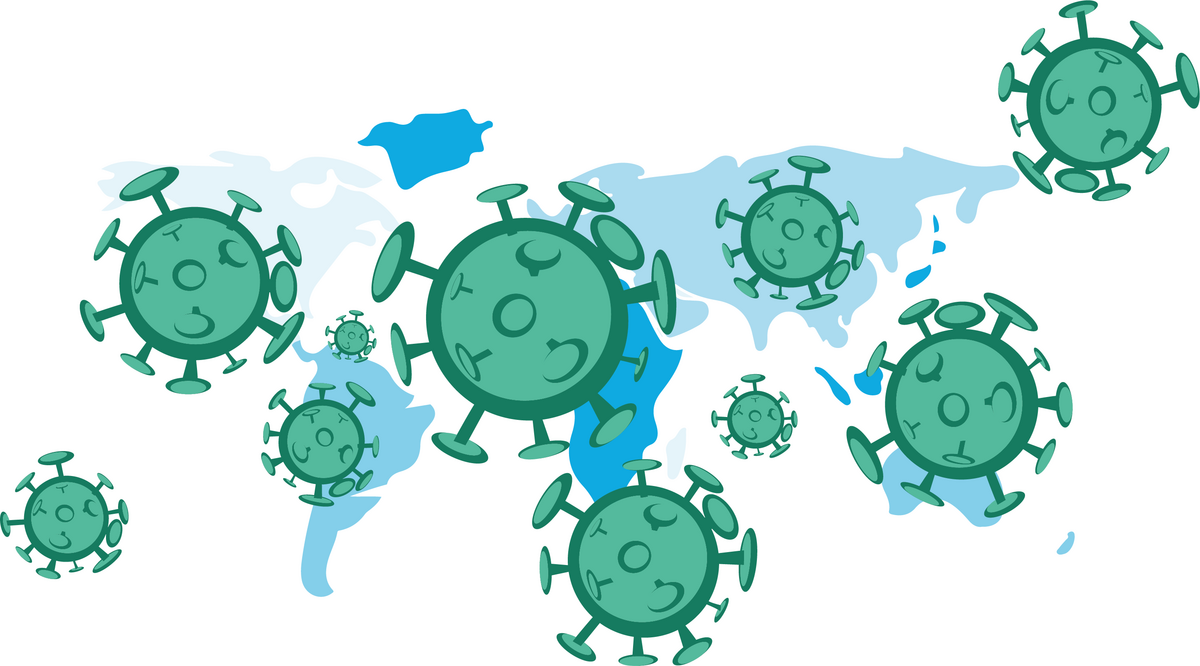Flu vaccination in autumn 2021
Preventive vaccination is an effective way to avoid infection. Flu vaccination protects against human seasonal influenza, but not against the common cold, nor against avian influenza. To maintain vaccine protection, revaccination with the current vaccine is required annually in the fall beginning in September-. The administration of the vaccination by the family doctor is paid by the health insurance companies. Unfortunately, little use is made of this option for a variety of reasons.
The University will again offer seasonal influenza vaccination through the Occupational Health Service in the fall of 2021. This is the tetravalent ( quadruple ) vaccine recommended by the WHO. Especially persons of the risk groups should definitely get vaccinated. With the vaccination you protect yourself as well as your private and professional environment. Persons with increased risk of direct contact with poultry and wild birds should also be vaccinated to prevent a possible double infection with the pathogen of avian influenza and the pathogen of human influenza.
You can now make an appointment online. In addition, you can download an information sheet about flu vaccination and a questionnaire to be filled out before vaccination on the above website.
Please bring with you to your vaccination appointment:
- The completed questionnaire (in German) (Please open the file in Acrobat or Acrobat Reader to complete it online).
- Your vaccination passport/certificate of vaccinations
- 15 minutes time after the vaccination (recommended monitoring period after the vaccination)
After vaccination, you should allow another 15 minutes of waiting time in case of acute side effects.
![[Translate to Englisch:] Influenzavirus [Translate to Englisch:] Influenzavirus](/fileadmin/_processed_/9/4/csm_Influenzavirus_RKI_GudrunHolland_536849c2f6.jpg)
What is influenza?
The real flu, also called influenza, is an acute disease of the respiratory tract. It is a serious, sometimes life-threatening illness caused by influenza viruses. In contrast, colds or "flu-like infections" are caused by other pathogens.
In addition to the symptoms of illness, the main problem with this virus is that it often alters smaller parts of the surface structure and thus escapes the naturally acquired defense mechanisms of the human immune system.
For this reason, vaccines must be adapted to the changes each year and revaccinated every year.
Who is particularly at risk?
Flu viruses can cause severe and even life-threatening courses in certain people, e.g. the elderly and people with previous illnesses. People with weakened immune systems and those with increased occupational exposure are particularly at risk.
These risk groups include, for example:
Persons over 60 years of age
All pregnant women from the 2nd trimester of pregnancy, in the case of increased health risks from the 1st trimester of pregnancy onwards.
Chronically ill persons (e.g. diabetes, asthma, with diseases of the lungs, kidneys, etc.)
Persons in facilities with extensive public traffic
Persons in health care services (or currently persons assisting in university Sars-Cov-2 screening).
For this reason, it is as important to protect these groups of people through their own immunity of many (so-called "herd protection") as it is to protect oneself.
Influenza and Corona Virus Pandemic
Every few years, major genetic changes give rise to entirely new types of influenza that can strike an unprotected population and trigger an influenza pandemic.
In the coming influenza season 2021/2022, there is a risk that influenza viruses and the Sars-CoV-2 virus will circulate at the same time, so that double infections or sequential infections cannot be ruled out (severe courses possible, especially in risk groups). It can be assumed that influenza increases the risk for a severe COVID-19 course and vice versa. If the symptoms of a covid and an influenza illness are often similar, an infection with influenza viruses can thus also be ruled out.
![[Translate to Englisch:] Händewaschen [Translate to Englisch:] Händewaschen](/fileadmin/_processed_/6/5/csm_wash-hands-2631777_1280_aef165dad5.jpg)
The best prevention, however, besides a healthy immune system, is hygiene. Frequent and thorough hand washing protects best against infection. Also avoid contact with sick people, especially in confined spaces. There is also a risk of infection in crowded places, e.g. on public transport. Wash your hands especially if you have touched contaminated surfaces, such as railings or door handles, which are touched by many people.

